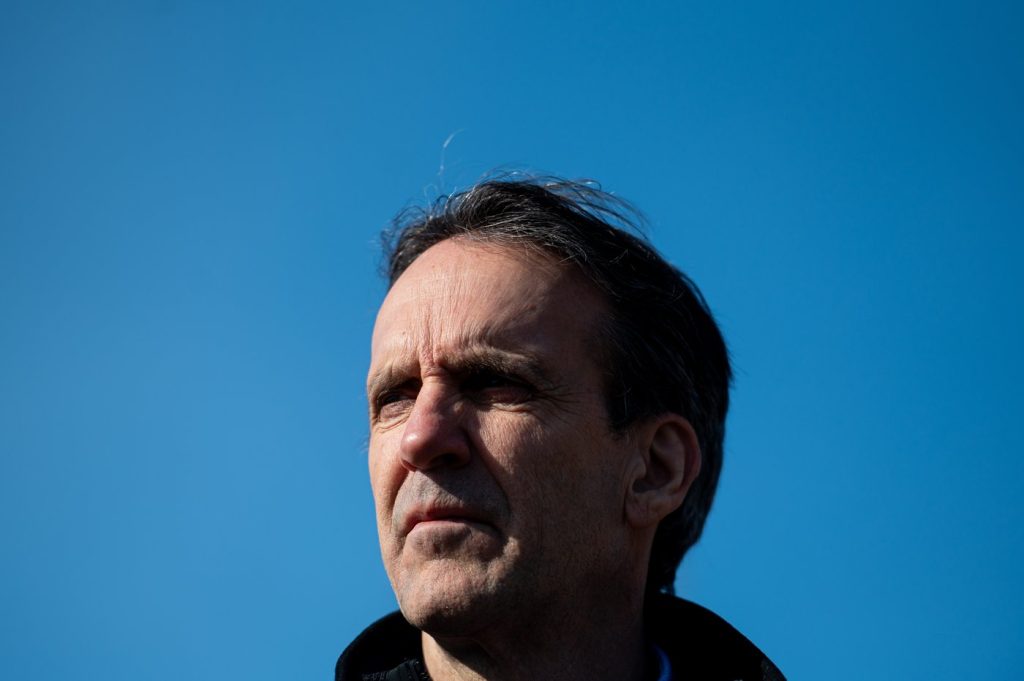OTTAWA – Canada's fentanyl czar, Kevin Brosseau, highlights that the fight against the deadly opioid would receive a significant boost from new law enforcement tools outlined in the Liberal government's recently introduced Strong Borders Act. This act proposes measures that aim to enhance inspection powers, facilitate police access to information, combat money laundering, and regulate chemicals used in fentanyl production.
Brosseau, appointed as fentanyl commissioner in February following concerns raised by the White House regarding the flow of synthetic opioids from Canada to the United States, emphasized that while Canada is "not the significant source" of fentanyl entering the U.S., any involvement in the drug trade poses serious concerns due to the devastating effects of even small quantities of fentanyl.
In a recent interview, Brosseau noted that U.S. officials have expressed their "deep appreciation" for Canada's efforts to combat fentanyl, highlighting the American focus on strengthening border security and homeland protection. He stated there is a collaborative desire from both nations to address gaps in information sharing to enhance overall effectiveness in tackling the drug crisis.
Brosseau acknowledged the urgent situation domestically, as an average of 21 Canadians die each day from fentanyl-related causes. He stressed that this statistic drives his commitment to take impactful action against the opioid crisis. The Strong Borders Act, despite facing criticism from civil libertarians and refugee protection advocates, includes various provisions that Brosseau believes will aid in addressing the fentanyl issue.
Key components of the proposed legislation involve requiring specific port owners and operators to facilitate inspections by the Canada Border Services Agency (CBSA) for goods bound for export. Additionally, the bill would eliminate existing barriers that prevent police from conducting mail searches relevant to ongoing criminal investigations and expand Canada Post's authority to inspect mail. Other measures include enabling law enforcement easier access to internet subscriber information, granting the health minister the ability to act swiftly on controlling precursor chemicals used for illicit drug production, and introducing limitations on large cash transactions.
Brosseau asserted that a comprehensive approach is crucial; otherwise, efforts to combat fentanyl would turn into a game of "whack-a-mole," with new challenges arising as others are addressed. He emphasized that criminal organizations are proficient at identifying and exploiting weak points, making it essential to close these vulnerabilities as soon as they are detected.
The legislation builds on previous Canadian border security initiatives, including the implementation of 24/7 surveillance using helicopters, drones, and towers. Furthermore, Ottawa is collaborating with Washington to establish a North American "joint strike force" aimed at targeting cross-border organized crime syndicates.
Brosseau articulated a holistic perspective on the fentanyl epidemic, stressing the need for accountability of those profiting from the drug trade while equipping authorities with the necessary tools to combat the crisis. He also emphasized the importance of developing programs to support individuals struggling with addiction, adopting what he calls an "all-of-society approach." His conversations reflect a consensus that there are no shortcuts or easy solutions in addressing this pressing issue.
Reflecting on the fentanyl crisis's impact on families, Brosseau shared that the issue resonates with parents across the country, including himself. He expressed a commitment to provide reassurance and support to fellow parents concerned about their children's exposure to drugs, aiming to show that there is a concerted effort underway to tackle this pressing problem.
This report was first published on June 13, 2025.
Jim Bronskill, The Canadian Press











